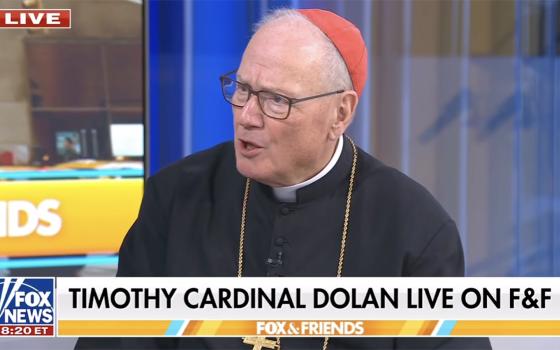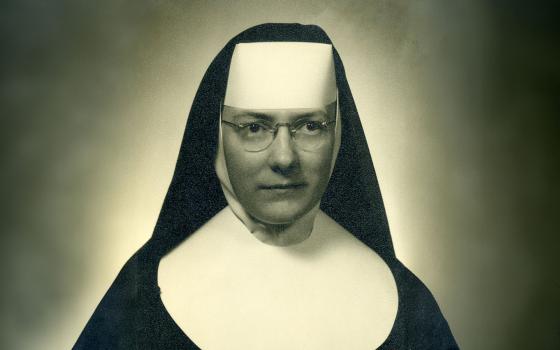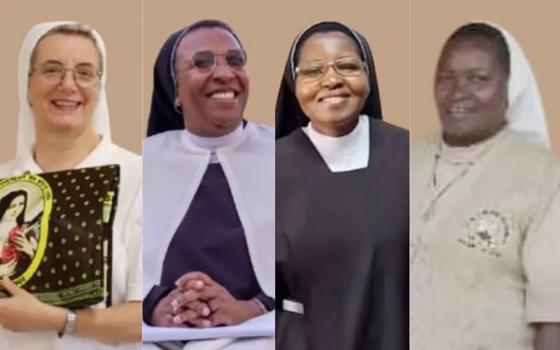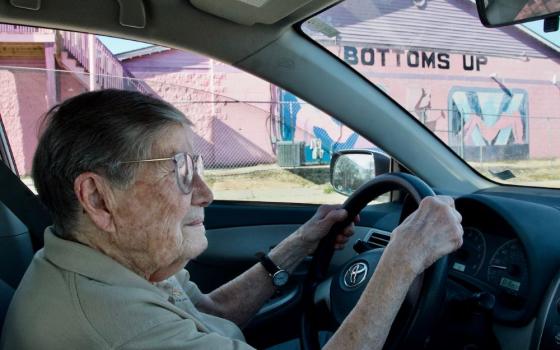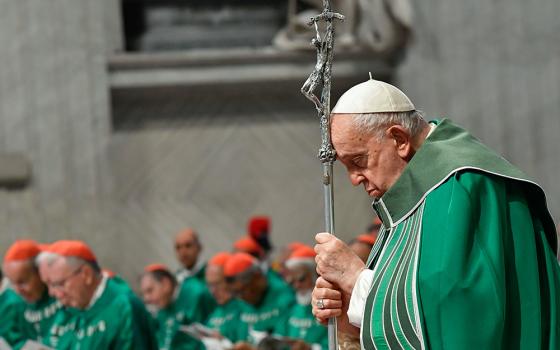
Boston College School of Theology and Ministry professor Rafael Luciani and Sacred Heart Sr. Maria Cimperman speak during a webinar on the synod on synodality Jan. 12, hosted by the Center for the Study of Consecrated Life. (GSR screenshot)
Synodality, where the church hierarchy listens to those in the pews, may seem like a new concept — but only because the Catholic Church has drifted away from this ancient tradition, a professor says.
Boston College School of Theology and Ministry professor Rafael Luciani told a webinar with 1,200 registrants that synodality dates back to the first millennia of the church, and that through the Synod of Bishops on synodality, Pope Francis is simply reviving the practice in the spirit of the Second Vatican Council (1962-65).
And synodality is especially important now because "the church is in the midst of a clericalist crisis," Luciani said. "Synodality is rooted in the tradition of the church, Francis is rescuing this value of our own tradition."
The webinar, focused on how consecrated religious can engage in synodality, was hosted Jan. 12 by the Center for the Study of Consecrated Life at Catholic Theological Union in Chicago. Luciani is an expert on the Theological Commission of the General Secretariat of the Synod of Bishops and on the faculty at the Universidad Católica Andrés Bello in Caracas, Venezuela, and is a member of the Theological Advisory Team of the Presidency of CLAR (Latin American Confederation of Religious).
Sacred Heart Sr. Maria Cimperman, director of the Center for the Study of Consecrated Life and the moderator of the discussion, said Luciani has previously noted that "if you're only listening, it's a survey," but that synodality calls us to much more. Cimperman is author of Religious Life for Our World: Creating Communities of Hope, and was named by the International Union of Superiors General to a four-person commission that created a synodal process for congregations and who will encounter the responses from religious congregations and offer a synthesis for the synod.
'What I listen to binds me in my decisions and in my discernment. If a bishop is listening, he cannot make a decision in isolation.'
—Rafael Luciani
"When I am being listened to, it is the Spirit speaking through my life," he said. "We have to find a consensus, and this is new. To build a consensus means to discern together, to pray together, to share time together — it's a process."
Luciani said synodality is much more than just the bishops of the church listening to the people — which they should be doing anyway. Rather, they should participate in dialogue "as just one more among the faithful," noting that the roots of the word synod come from Greek words meaning "to journey together."
"This changes the whole way we relate to each other as a church and as the people of God," he said.
Luciani said it is more than simply taking directions or advice.
"What I listen to binds me in my decisions and in my discernment," he said. "If a bishop is listening, he cannot make a decision in isolation."
The church is not the hierarchy, the church is the people of God, Luciani said, and being people of God demands that everyone is part of the dialogue.
Cimperman said those in religious life can offer their tradition of communal discernment.
Advertisement
"This doesn't remove people from their roles, even if they're in leadership, but each person's dignity must be listened to," she said. "This is a space where everyone is to be consulted. Everyone."
Though the concept is not new, Luciani said, it seems revolutionary after recent decades.
"Take the word consensus. Twenty years ago, that was a word that was almost never heard," he said. "This is a new reception of the Second Vatican Council."
The synodal process is supposed to begin in the dioceses and parishes, but those on the panel said that is not happening in many areas. Caldwell Dominican Sr. Donna Ciangio is helping to lead efforts in the Archdiocese of Newark, New Jersey, and said during the webinar that the archdiocese has a wealth of resources online that anyone in any diocese is free to use. There are resources in English and six other languages.
Cimperman said that while men and women religious are often on the margins of the church, this is a chance for them to be the catalyst that makes the synodal process work.
"I think this is a profound moment for religious life," she said. "Religious life is not meant to be the whole loaf of bread or even the wheat, but we're called to be the yeast. ... We're being asked to create spaces for those conversations."
Organizers said a recording of the webinar should be available in a few days on the Center for the Study of Consecrated Life's media channel.

